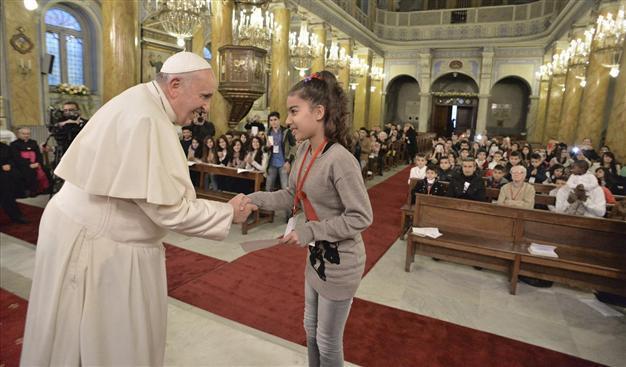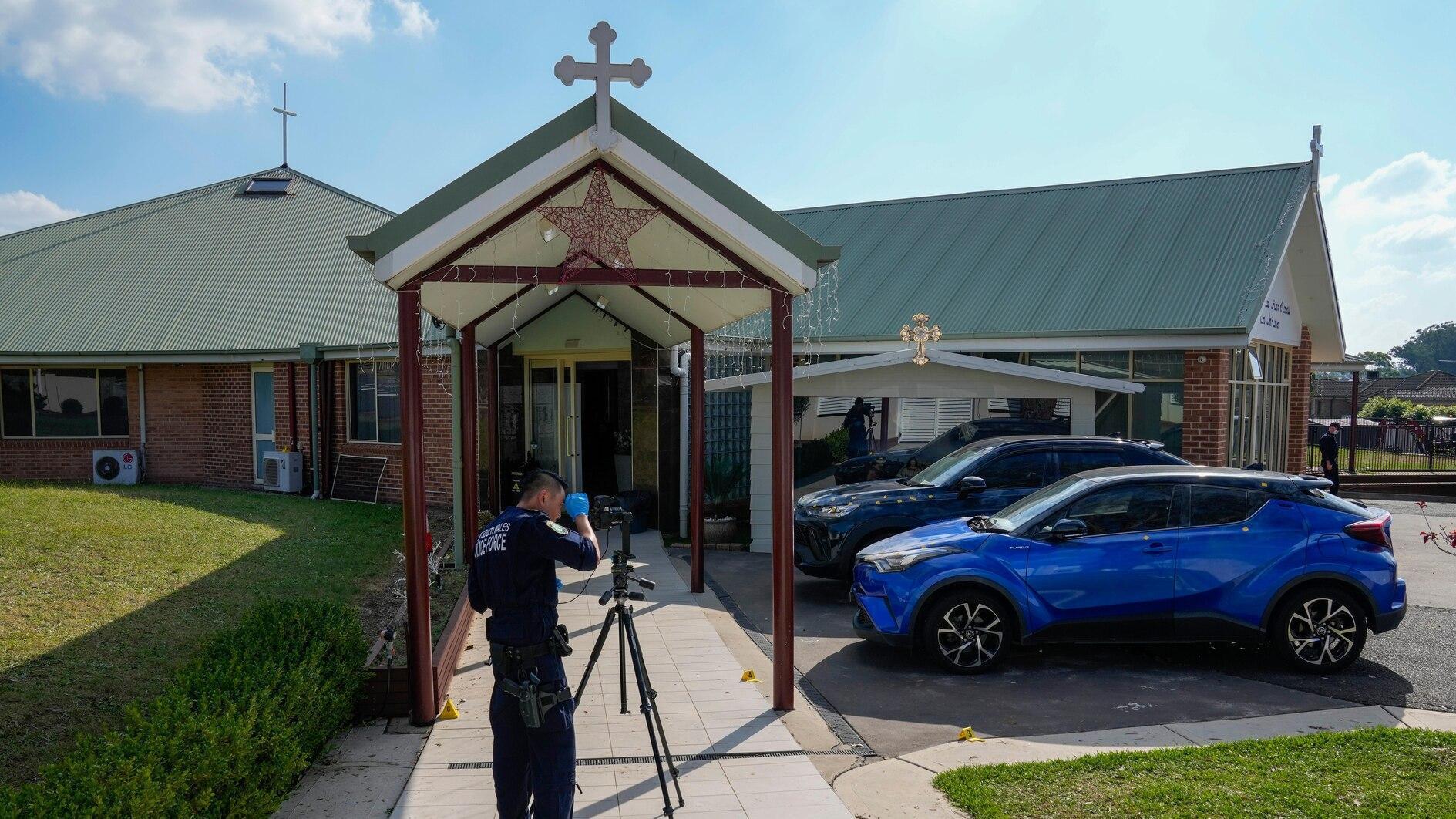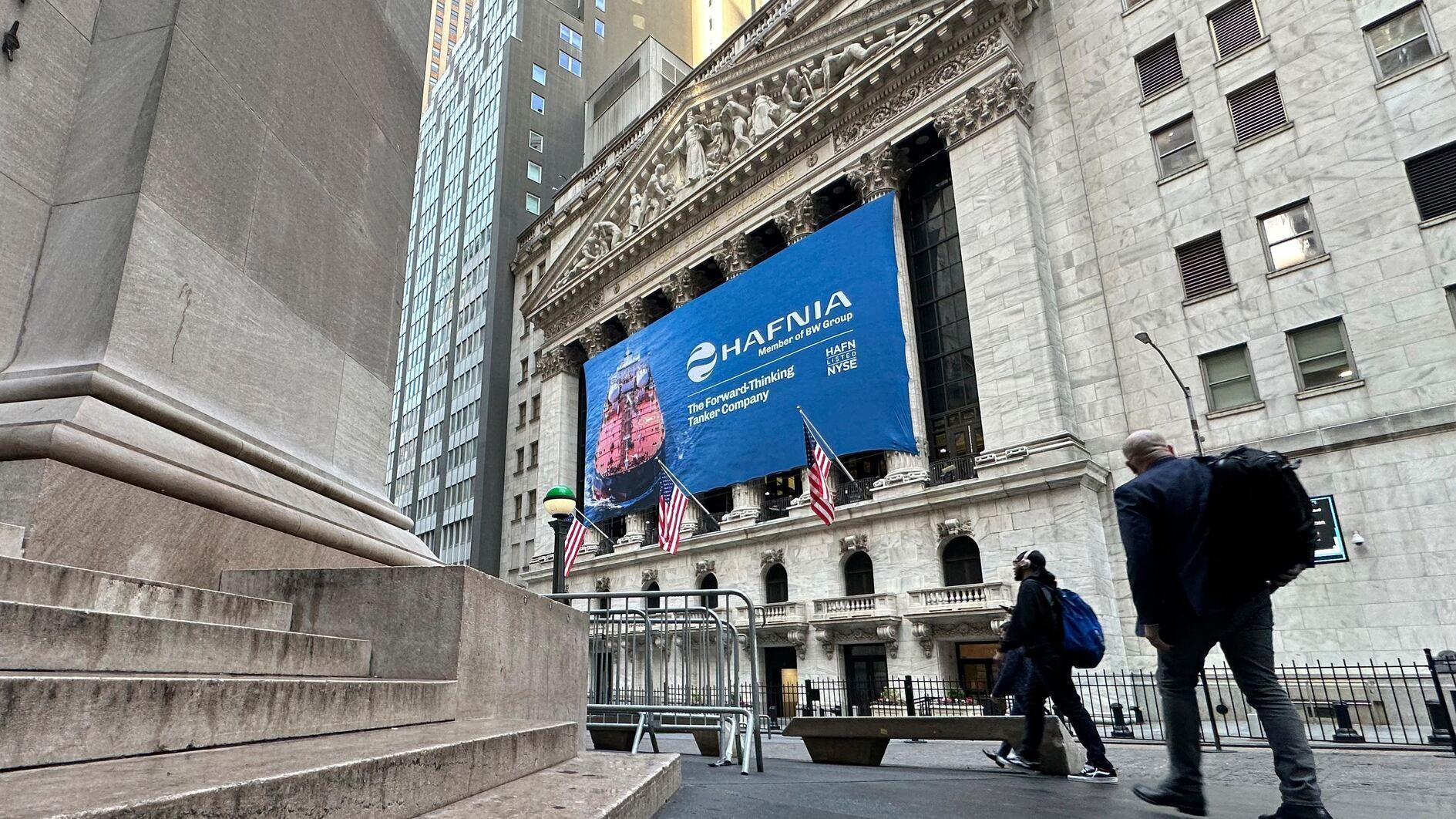Pope hopes for opening of Turkey-Armenia border
ANKARA – Anadolu Agency

In this photo provided by Vatican newspaper L'Osservatore Romano, Pope Francis, meets with refugee children in Istanbul, Nov. 30. AP Photo
Pope Francis has voiced his hope for the opening of the Turkey-Armenia border, during a flight back to Rome after a three-day visit to Turkey.The pope voiced hope that gestures over the coming anniversary year of the 1915 incidents would bring the two nations closer together, and he specifically voiced hope that Turkey would open its border with Armenia.
According to a report by the Catholic News Service, Francis praised Turkish President Recep Tayyip Erdoğan’s statement in 2014 regarding the 1915 incidents as an “outstretched hand,” and expressed his hope that the border gates, which have been closed for two decades, would be opened.
Turkey closed its border with Armenia in 1993 following the escalation of the latter’s conflict with Azerbaijan over the Nagorno-Karabakh region.
Francis said he told Erdoğan that “it would be wonderful if all the Muslim leaders of the world – political, religious and academic, spoke up clearly and condemned” violence that damages Islam, according to Agence France-Presse.
“That would help the majority of Muslims if that came from the mouths of these political, religious and academic leaders. We all have need of a global condemnation,” Francis said.
The pope acknowledged that current global crises had generated a danger of all Muslims being tarred with the same brush.
Francis attacked those who say “all Muslims are terrorists,” adding: “As we cannot say that all Christians are fundamentalists.”
In a hugely symbolic moment, the pope during a visit Nov. 29 to Istanbul’s Sultan Ahmet mosque – better known abroad as the Blue Mosque – turned toward Mecca and stood in two minutes of reflection next to a top Islamic cleric.
“I prayed for peace, for Turkey, for everyone, for myself. It was a moment of sincere prayer,” the pontiff later said about the gesture.
His trip was marked by crowds far thinner than during previous visits abroad but also by the heaviest security, which extended to positioning snipers on the balconies of mosque minarets.
Turkey’s Christian community is tiny – just 80,000 in a country of some 75 million Muslims – and only a small proportion of these are Catholics.
Pope Francis’s trip was less controversial than the last by a pontiff – the visit by his predecessor Benedict XVI in 2006 was overshadowed by remarks he had previously made deemed to be anti-Islamic.
In a rare joint plea, the pope and Orthodox Greek Patriarch Bartholomew spoke out against anti-Christian violence, saying the world could not stand by and allow “a Middle East without Christians.”
“We cannot resign ourselves to a Middle East without Christians, who have professed the name of Jesus there for 2,000 years,” the church leaders said, adding that the “terrible situation” of Christians calls “for an appropriate response on the part of the international community.”
The Argentine leader of the world’s Catholics denounced what he termed the current wave of “Christianophobia” in the Middle East, accusing Islamist radicals of “hunting” Christians while certain officials acted as if “they did not want any left in these countries.” The pontiff did not specify which countries he was referring to.
On the final day of his first visit to Turkey, Francis urged an end to the millennium-old schism between the Orthodox and Catholic Churches and said this was all the more urgent due to the violence against Christians by Islamic State of Iraq and the Levant (ISIL) extremists.
Early Nov. 30 he attended a divine liturgy led by Bartholomew, the “first among equals” of an estimated 300 million Orthodox believers.
“How can we credibly proclaim the message of peace which comes from Christ if there continues to be rivalry and disagreement between us?” he said in an address at the Orthodox Patriarchate.
Bartholomew for his part said that while the road to full communion would be “perhaps lengthy and sometimes even rugged” it was irreversible.
He echoed the pope’s comments that the violence against Christians had made this more pressing. “We no longer have the luxury of isolated action.” The two church leaders also called on the parties involved in the Ukraine conflict “to pursue the path of dialogue and of respect for international law.”
The pope and Bartholomew have in the last months worked hard for a rapprochement between the eastern and western churches which have been split since the schism of 1054.
Bartholomew, who commands considerable respect beyond the Orthodox Church, holds an office that dates back to the early days of the Byzantine Empire, over a millennium before the Ottoman conquest of Constantinople in 1453.
During a prayer service Nov. 29, the pope bowed his head and asked Bartholomew to kiss him on his brow, in a remarkable sign of humility toward the patriarch.
















